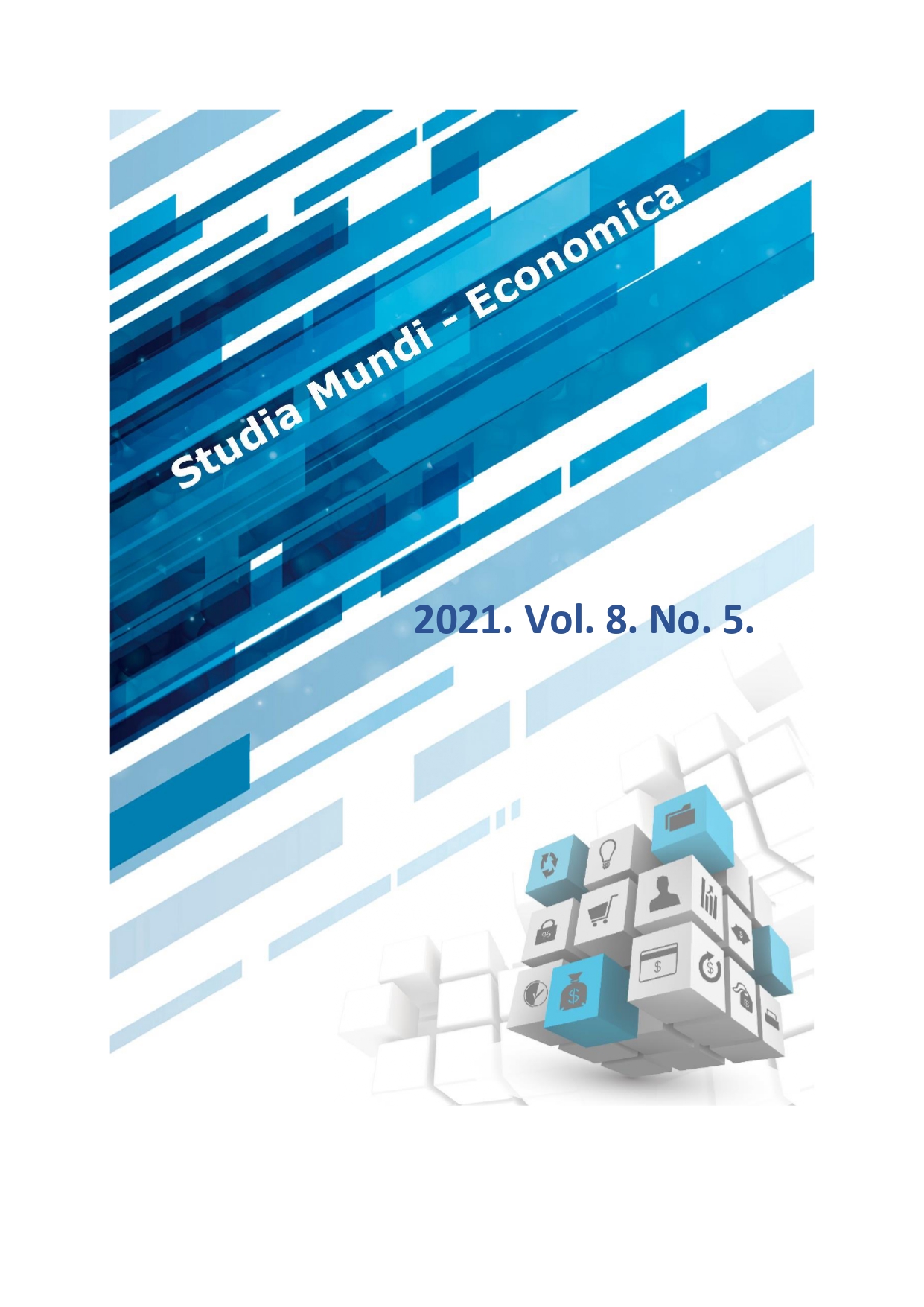High school students’ awareness of greenhouse gas emissions related to certain sectors of the national economy and households
DOI:
https://doi.org/10.18531/Studia.Mundi.2021.08.05.47-58Keywords:
éghajlatváltozás, üvegházhatású gáz, nemzetgazdasági ágak, földrajztanításAbstract
Climate change is generating ever more substantial harmful effects, which will be noteworthy even in the lifetimes of future generations. Several different factors play a role in this crisis, but experts say that since the industrial revolution anthropogenic activities have been the primary cause of the increase in the concentration of greenhouse gases in the atmosphere, which in turn brings about rising temperatures over the globe. Different activities result in varying levels of greenhouse gas emission, and due to the complex nature of this question, it should be covered in geography lessons. The objective of this study is to examine greenhouse gas and CO2 emission rates in Hungary as well as high school students’ awareness of this issue. Junior students of one academic and one technical high school participated in the pilot study involving online questionnaires in the first semester of the academic year of 2020/2021. I used SPSS in the analysis of one question group. In both cases – greenhouse gas or CO2 emission – students were asked to rank different households or sectors of economy based on how severely they thought they polluted the atmosphere. I compared the answers given by students from these two schools with each other as well as with the relevant data provided by the Central Statistics Office (KSH). The results showed that the mentioned rankings were mostly identical, with one important difference: students ranked households in the last place in both emission types, whereas data by the KSH imply that households are the biggest polluters. This is aggravating, as only through one pilot study we can already determine the fact that students are not aware how big a role households play in global warming. Provisions are to be made for further research in the area with a larger sample size.
References
Anda A. et al. (2011): Globális környezeti problémák és néhány társadalmi hatásuk. Budapest, Kempelen Farkas Hallgatói Információs Központ, 160 p., 67-72. p.
Bartholy J. et al. (2011): Klímaváltozás – 2011. Klímaszcenáriók a Kárpát-Medence Térségére. Budapest, MTA és ELTE, 287 p., ISBN 978-963-284-232-5
Boncz, I. (2015): Kutatásmódszertani alapismeretek. Pécs, Pécsi Tudományegyetem Egészségtudományi Kar, 290 p., ISBN 978-963-642-826-6
Brace, N. et al. (2016): SPSS for Psychologists (and everybody else). London, Palgrave Macmillian, 415 p., ISBN 978-1-137-57922-5
Csíkos Cs. (2020): A neveléstudomány kutatásmódszertanának alapjai. Budapest, ELTE Eötvös Kiadó, 120 p
Dunkel Z. et al. (2018): Az éghajlatváltozás hatására fellépő környezeti változások és természeti veszélyek. Földrajzi Közlemények. Vol. 142. No. 4. 261-271. p., ISSN: 0015- 5411, DOI: https://doi.org/10.32643/fk.142.4.1
Faragó T. – Kerényi A. (2003): Nemzetközi együttműködés az éghajlatváltozás veszélyének, az üvegházhatású gázok kibocsátásának csökkentésére. Budapest, Debrecen, Debreceni Egyetem, Környezetvédelmi és Vízügyi Minisztérium, 70 p., ISBN 963-472-788-3
Field, A. (2017): Discovering Statistics Using IBM SPSS Statistics. Thousand Oaks, SAGE Publications Ltd., 1104 p., ISBN 978-152-641-952-1
Földrajz 7-8. évfolyam kerettanterv, a 2020-as NAT-hoz illeszkedő tartalmi szabályozók https://www.oktatas.hu/kozneveles/kerettantervek/2020_nat/kerettanterv_alt_isk_5_8
Földrajz 9-10. évfolyam kerettanterv, a 2020-as NAT-hoz illeszkedő tartalmi szabályozók https://www.oktatas.hu/kozneveles/kerettantervek/2020_nat/kerettanterv_gimn_9_12_evf
Gelencsér A. (2017): Éghajlatváltozás és emberi tevékenység. Magyar Tudomány. Vol. 178. No. 6. 674-680. p., ISSN 0025-0325
IPCC (2014): Climate Change 2014: Synthesis Report. Contribution of Working Groups I, II and III to the Fifth Assessment Report of the Intergovernmental Panel on Climate Change. IPCC, Geneva, Switzerland, 1-31. p.
Jáger B. – Rausch A. (2021): A klímaváltozás oktatása nemzetközi kutatások alapján: Elméleti megközelítések, hatékony módszerek és tanulási eredmények. Iskolakultúra. Vol. 31. No. 3. 75-92. p., ISSN 1215-5233
Kertész M. – Vida G. (2009): Ökológia és környezeti gondok – Bevezető. Magyar Tudomány. Vol. 170. No. 1. 43-48. p., ISSN 0025-0325
Kontra J. (2011): A pedagógiai kutatások módszertana. Kaposvár, Kaposvári Egyetem, 130 p.
Központi Statisztikai Hivatal: Nemzetgazdasági ágak és háztartások üvegházhatású gáz- kibocsátása, https://www.ksh.hu/stadat_files/kor/hu/kor0018.html
Mika J. (2019): Az éghajlatváltozásról 12 tételben. Geometodika. Vol. 3. No. 1. 5-25. p., ISSN 2560-0745
Monroe, M. C. et al. (2019): Identifying effective climate change education strategies: a systematic review of the research. Environmental Education Research. Vol. 25. No. 6. 791–812. p., ISSN 1469-5871, DOI: https://doi.org/10.1080/13504622.2017.1360842
Nováky B. (2009): Az éghajlatváltozás, hatásai és az intézkedések az IPCC Negyedik Értékelő Jelentése tükrében. Vol. 7. No. 1. 241–268. p., ISSN 1589-4673
110/2012. (VI. 4.) Kormányrendelet A Nemzeti alaptanterv kiadásáról, bevezetéséről és alkalmazásáról. Magyar Közlöny. 2012. évi 66. szám 10635-10848 p.
5/2020. (I. 31.) Kormányrendelet A Nemzeti alaptanterv kiadásáról, bevezetéséről és alkalmazásáról szóló 110/2012. (VI. 4.) Korm. rendelet módosításáról. Magyar Közlöny. 2020. évi 17. szám 290-447 p.
Downloads
Published
Issue
Section
License
Copyright (c) 2021 Kulman Katalin

This work is licensed under a Creative Commons Attribution-NonCommercial-NoDerivatives 4.0 International License.
A folyóirat Open Access (Gold). Cikkeire a Creative Commons 4.0 standard licenc alábbi típusa vonatkozik: CC-BY-NC-ND-4.0. Ennek értelmében a mű szabadon másolható, terjeszthető, bemutatható és előadható, azonban nem használható fel kereskedelmi célokra (NC), továbbá nem módosítható és nem készíthető belőle átdolgozás, származékos mű (ND). A licenc alapján a szerző vagy a jogosult által meghatározott módon fel kell tüntetni a szerző nevét és a szerzői mű címét (BY).






